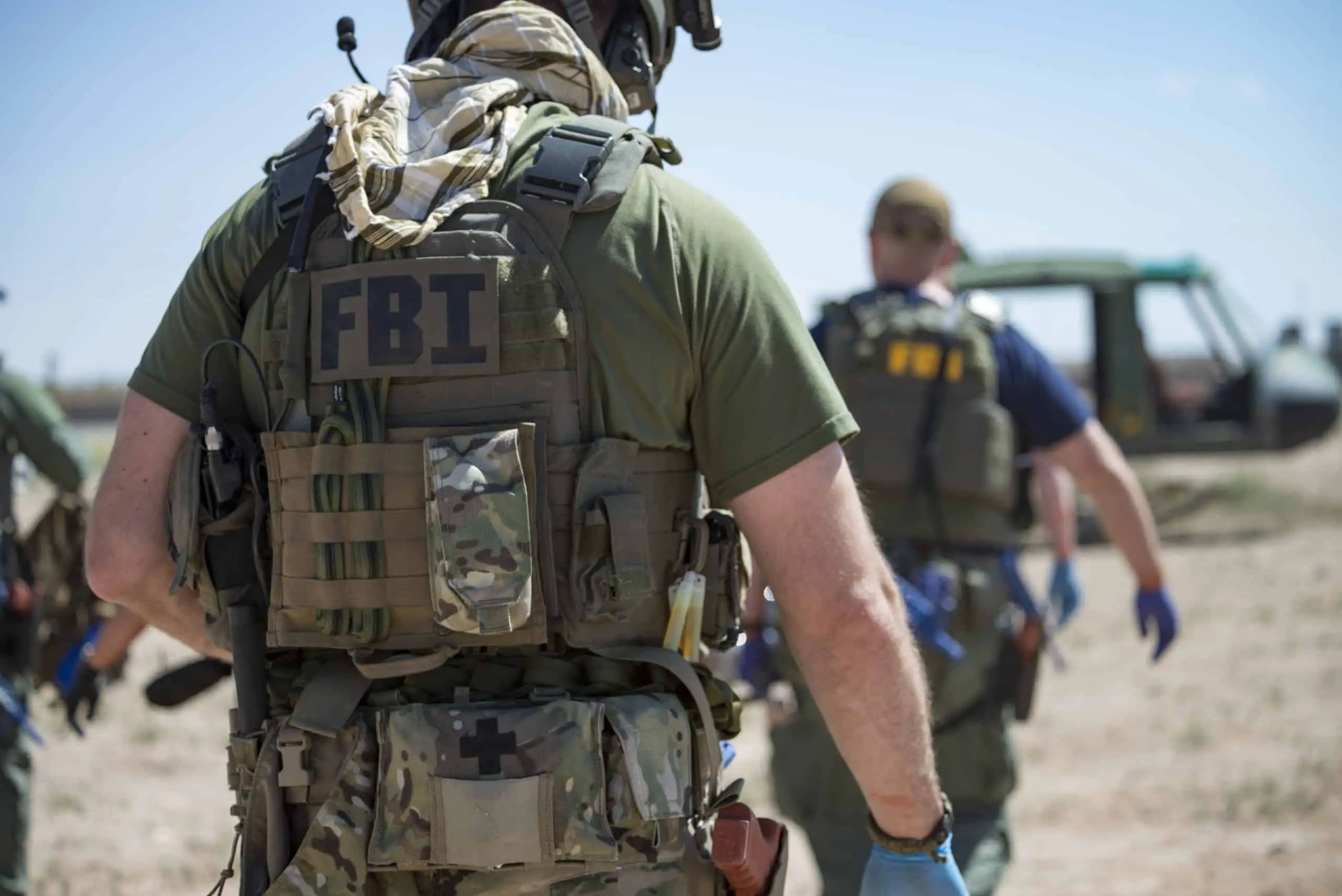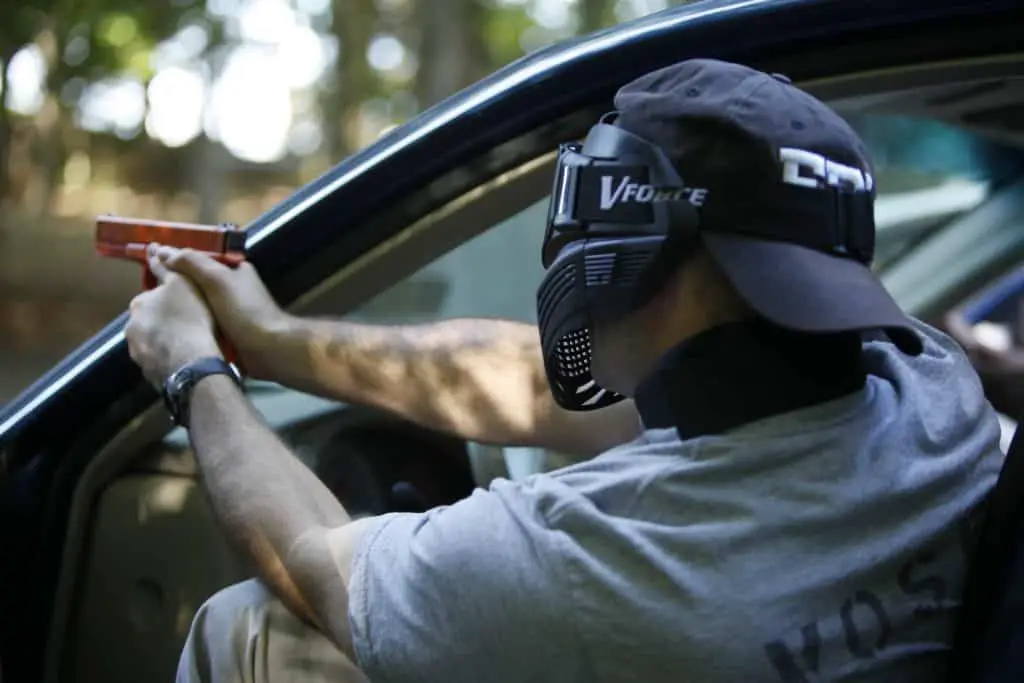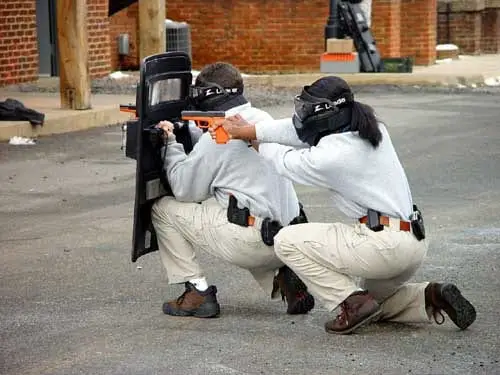
The Federal Bureau of Investigation (FBI) gets a lot of attention in the media. Not only are news stories constantly bombarding us with “The FBI this / The FBI that”, but Hollywood is constantly showing a romantic appeal to the lifestyle of a Special Agent.
Is life as a Special Agent anything like what is portrayed in Criminal Minds or Catch Me if You Can? Not every detail of the FBI life is open public knowledge, so entertainment writers are forced to make up the unknown and spice up the known bland aspects of the job.
While the Department of Justice and FBI websites are brimming with information, we’ve opted to pull out the relevant info for the most common questions asked about FBI life.

TOP QUESTIONS ABOUT FBI CAREERS
What is it Like to be an FBI Agent?
FBI Agents are in an esteemed position of trust and authority of law enforcement. This also places a lot of responsibility on the Agent. FBI Agents are held to the following suitability standards:
- Judgement
- Conscientiousness
- Integrity
- Emotional Maturity
- Initiative
- Cooperation
Additionally, a part of being an FBI Agent is being able to:
- Be available for worldwide assignment on either a temporary or a long-term basis.
- Work a minimum of 50 hours a week (which may include non-business, erratic hours) and be on-call 24/7, including holidays and weekends.
- Maintain a high level of fitness as necessary to complete the FBI Academy at Quantico and hold it throughout your career.
- Carry a firearm as well as be willing to use deadly force, if necessary.
- Be willing and able to be active in arrests, execution of search warrants, and other potentially-dangerous assignments, all of which present some risk of personal bodily harm (sometimes to yourself).
Some of the tasks of an FBI agent can include:
- Locating and apprehending fugitives for violations of particular federal laws and, when so necessary, state and local fugitives pursuant to any federal statutory authority.
- Conducting specialized investigations to identify, disrupt, or dismantle currently-existing or emerging criminal enterprises should their activities affect the US. Addressing international criminal organizations or other terrorist groups that may threaten the US citizens and their property, through expanded liaison and the conduct of international, extraterritorial investigations as directed by laws or Executive Orders.
- Gathering, analyzing and assessing information, or intelligence, of planned or committed criminal acts.
- Establishing and implementing special outreach programs that will enhance FBI and community partnerships, and sharing.
- Participating in interagency law enforcement activities which address criminal issues common to particular federal/state/local agencies.
- Developing new techniques, systems, and equipment to improve and strengthen law enforcement, and assist in conducting related state, local, and international law enforcement training programs.
- Providing timely and relevant information and identification services concerning individuals, stolen property, known criminal organizations and activities, localized crime statistics, and other law enforcement related data, not only to the FBI, but to specified law enforcement, criminal justice, government, civilian, education, employment, and firearms sales organizations.
- Reviewing and assessing operations and function performance to ensure adequate compliance with any laws, rules, and regulations and to ensure the efficiency, effectiveness, and economy of operations.
- Effectively and appropriately communicating and disclosing information on any particular FBI mission, accomplishments, operations, and values to Congress, the media, and the general public.
But, with an attrition rate of just 4% annually, the perks must make it all worthwhile. Given benefits include healthcare and pension, but it could be that the lifestyle perks that can’t be flaunted are also a fringe benefit.

How Much Does the FBI Get Paid?
How much does the FBI make a year, as a whole? It is a government entity, rather than a business, so it does not have an income or revenue stream. Rather, it is allocated money from the federal government, its FY 2020 Budget overview totaled $9.31 billion.
How much do FBI get paid for professional functioning positions? This varies greatly depending on the position such as clerk or director. Though, for hours worked, it isn’t uncommon for salaried positions where particular employees work 60 hours per week (such as an internal legal counsel) wind up having an hourly pay that is less than a well-paid executive assistant who only works 40 hours each week.
How much does an FBI Special Agent make? FBI Special Agents average $65,220 per year. The entry-level salary starts at $39,000 with the highest reported salary capping at $119,000. Salaries are worth more for years of service, as well as any specializations that you may acquire during your career.
How Many People Work for the FBI?
The 2020 Budget supported a total of 35,558 positions. Of this, 13,201 are agents, 3,115 are intelligence analysts, and 19,242 are professional functioning positions.
What to Study in College for FBI
What majors does the FBI look for in an applicant? Technically, the FBI accepts any four-year degree from an accredited college or university. While many online schools may be accredited, it is important to verify this ahead of time because not EVERY accreditation is considered a legitimate accreditation. This can apply to brick-and-mortar schools, as well.
That being said, different majors have different advantages. The FBI does prefer majors geared towards criminal justice more than interior design. Even a degree that is not directly criminal justice may be useful if it can work in tandem with the goals of the FBI. Monitoring trends can help with keeping yourself marketable. For example, with computer and internet crime being so prevalent, computer technology, particularly with a concentration in forensics, is a specialty currently in high demand.
Other options are to major in a form of psychology (abnormal, criminal, forensic, etc.) if interested in profiling. However, it is worth noting that almost nothing can be done with a four-year degree, alone, in psychology; most positions in that field require a master’s degree as a minimum.

What is an FBI NAT?
Not every applicant of the FBI is interested in becoming a Special Agent. Other positions can include intelligence agents, surveillance, or translation (which may even be a contracted, non-FBI gig).
At the arrival of the FBI Academy, rookies are referred to as New Agents in Training (NAT) or New Intelligence Analysts in Training (NIAT), depending on if they are going for Special Agent or Intelligence Analyst positions, respectively. Special Agents would be NATs.
How to Find Out if Someone is an FBI Agent
Not everyone can look at a badge and identify it as legit versus a dollar store toy with an ID card courtesy of Kinkos.
Since impersonating an Agent is a serious crime, the FBI is very cooperative with verifying agent identities. The FBI has a total of 56 field offices to serve as local points of contact throughout the country. You can find your local office by following this link.
Also, the general FBI number is 202-324-3000.
Should I Be in the FBI?
Being an FBI Agent isn’t for everyone. Do you work well under pressure? Are you in outstanding physical condition, or are you willing to get there? Are you detail-oriented? Can you follow precise directions? Can you keep your mouth shut? These are additional things to consider above and beyond the basic minimum qualifications.
Even if you are still interested, are you eligible?

WHO CAN JOIN THE FBI?
What Are the Requirements to be an FBI Agent?
What does it take to be in the FBI? We’ve covered some of the suitability standards, but the basic minimum requirements mandate that any candidate/applicant:
- Be between 23 and 36 years of age.
o FBI Special Agents have a mandatory retirement age of 57. In order to achieve the required 20 years of service for retirement, Special Agents must enter on duty no later than the day before their 37th birthday. Outside applicants must apply for the Special Agent position prior to their 36th birthday to allow adequate time to complete the Special Agent Selection System. The FBI may disqualify applicants at any time if it is determined that they will reach age 37 before appointment.
o Current FBI employees must apply prior to their 39th birthday and must be appointed and assigned to the FBI Academy no later than the month of their 40th birthday.
- Have a bachelor’s degree (or higher) from a US-accredited college or university.
- Have at least two years of full-time work experience; or one year if you possess an advanced degree (master’s or higher).
- Possess a current, valid driver’s license and six months of actual driving experience.
- Meet the specified physical fitness standards.
- Be able to report to one of the field offices for interviews, or testing, several times through the application process. Applicants are responsible for their own travel to and from the designated field office. Applicants who currently reside overseas must be able to travel to the US for testing and processing at a designated field office at their own expense (you may choose the field office that is most convenient for you). While travel from any overseas location to the Processing Field Office (PFO) is solely the responsibility of applicants, any travel for Phase II testing out of the PFO will be paid by the FBI.
- If applicants are currently on active duty in the military, they must be within one year of completing their service before submitting an application.

Can You Join the FBI Without a Degree?
To be a Special Agent with the FBI, you must have a minimum of a four-year degree.
There are professional service positions that do not require a degree. The following are instant disqualifiers for any employment candidate of the FBI:
- Non-U.S. citizenship;
- Conviction of a felony (Special Agent only: conviction of any domestic violence misdemeanor or more serious offense);
- Violation of the FBI Drug Policy;
- Default on a student loan insured by the U.S. Government;
- Failure of an FBI-administered urinalysis drug test;
- Failure to register with the Selective Service System (for males only, exceptions apply – please click here to find out more);
- Knowingly or willfully engaged in acts or activities designed to overthrow the U.S. government by force;
- Failure to pay court ordered child support; or
- Failure to file federal, state, or local income tax returns.
It only takes any one of the above to be ineligible for employment with the FBI.
How Old Do You Have to be to Join FBI Forces?
At least 23 years old, but no older than 36 at the time of application.

Can You Be an FBI Agent with a Criminal Record?
Can you work for the FBI with a misdemeanor, or can you join the FBI with a misdemeanor? That depends on the position for which you are gunning.
For professional support services, misdemeanors may be acceptable, depending on severity and quantity of the convictions.
For Special Agents, conviction of misdemeanors such as domestic violence or something more serious will prohibit employment.
Can you work for the FBI with a Felony? No.
Do You Have to be a Police Officer Before FBI?
Do you have to be a cop to be FBI? No. While investigative experience is always an excellent edge over other applicants, it is not a specific requirement.
Do FBI Agents Have to be Lawyers?
No. Depending on the education of the agent, they may not be an attorney. Legal services, such as litigation, are usually performed through those in professional functioning positions.
Does Military Experience Help for FBI Work?
Yes. How to get into the FBI after the military is a similar process as that of leaving the police force for the FBI.
Military and police service experiences are of particular interest to the FBI, as a part of their duty is to uphold the law. Having a background in the law enforcement arena offers experience that other candidates will not likely possess, but it is not required and is not a guaranteed point of interest.

Can Foreigners Join FBI Teams?
Yes. Though the FBI requires employees to be US citizens, it is not a by-birth requirement as our presidency is.
Can FBI Agents Have Beards?
General FBI grooming and hygiene standards are codified, unless otherwise as specified for a duty or position, post-training, as:
- Clean shaven through training, clean mustaches permitted afterwards.
- Jewelry and piercings must be small, simple, and not pose a safety risk.
o Facial piercings are not permitted.
o Females, only, are permitted earrings.
- Tattoos that may be disruptive are to be covered.
- Hair must be a reasonable length without extreme styling or color.
o Men’s hair can not be longer than the bottom of the collar, and may not be adorned in buns, braids, or ponytails.
What Do You Need to be an FBI Agent?
To become a Special Agent of the FBI, you have to pass a mentally and physically challenging selection process designed to only permit the most capable of applicants.
Due to the high level of trust and commitment required for a special agent position, it is crucial that prospective agents be able to:
- Adhere to the highest standards of conduct, especially in maintaining honesty and integrity.
- Be available for worldwide assignment on either a temporary or a long-term basis.
- Work a minimum of 50 hours a week (which may include non-business, erratic hours) and be on-call 24/7, including holidays and weekends.
- Maintain a high level of fitness as necessary to complete the FBI Academy at Quantico and hold it throughout your career.
- Carry a firearm as well as be willing to use deadly force, if necessary.
- Be willing and able to be active in arrests, execution of search warrants, and other potentially dangerous assignments, all of which present some risk of personal bodily harm (sometimes to yourself).
